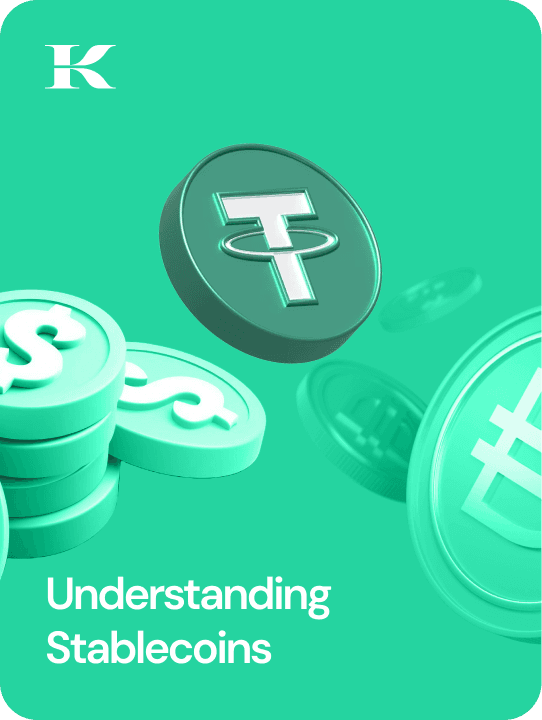Sep 17, 2024
Education
Blockchain
Bitcoin
Cryptocurrency: The Digital Revolution Redefining Money and Trust
Cryptocurrency: The Digital Revolution Redefining Money and Trust

Imagine a world where money isn’t just paper bills or metal coins, but a series of digital codes that can be sent anywhere in the world instantly, without a bank in sight.
Sounds futuristic, right? Well, that future is already here, and it’s called cryptocurrency.
Think about this:
- Bitcoin, the first cryptocurrency, is now worth thousands of dollars per coin, and it's being accepted by major companies like Tesla and PayPal.
- Ethereum, another leading cryptocurrency, isn’t just digital money—it’s a platform that’s revolutionizing the way we build software and execute contracts.
- Cryptocurrencies are providing financial services to people in countries where traditional banking is out of reach.
But how did we get here? And why does it matter?
The Early Beginnings

Cryptocurrency didn’t just appear overnight. Its roots trace back to the 1980s with the creation of early cyber currencies like David Chaum’s DigiCash, which laid the groundwork for digital money. However, it wasn’t until 2009 that Bitcoin, the first decentralized cryptocurrency, was launched by an anonymous figure known as Satoshi Nakamoto.
The Mind(s), The Myth, The Legend: Satoshi Nakamoto
Mind(s)? Yep, you read that right. No one really knows if Satoshi Nakamoto was just one person or a whole group. And the name? That’s just a pseudonym—in order words, a fake name.
What we do know is that the mysterious figure—or figures—behind Satoshi Nakamoto is the mastermind of Bitcoin, a creation that fundamentally redefined the concept of money.
In 2008, during a period of global financial instability, Nakamoto released a whitepaper titled "Bitcoin: A Peer-to-Peer Electronic Cash System." This document laid out the framework for a decentralized currency that could function without the need for trust in centralized institutions like banks or governments.
The brilliance of Bitcoin lies in its decentralized structure—enabled by blockchain technology. Instead of relying on a central authority to verify transactions, Bitcoin uses a network of computers (nodes) to validate and record each transaction in a transparent, immutable ledger.

Now, here's where it gets interesting: this ledger isn't just one long list. It's actually divided into chunks called "blocks." Think of each block as a page in a digital ledger book. Each block contains a batch of transaction records from a specific time period.
These blocks are then linked together in chronological order, forming a "chain" - hence the term "blockchain." Miners, who are essentially the accountants of this system, compete to add new blocks to the chain. They do this by solving complex mathematical puzzles, a process known as proof of work.
This block-based structure is crucial because it allows the entire history of transactions to be securely stored and verified across the network. It's like having thousands of copies of the same ledger book, all constantly being updated and checked against each other. Pretty clever, right?
Bitcoin was a response to a broken financial system. Where banks could fail and currencies inflate, Nakamoto envisioned a system that was open, borderless, and governed by mathematics. Bitcoin offered a paradigm shift in how we think about ownership, value, and financial freedom in the digital age.
In Nakamoto’s world, you are your own bank. With its finite supply of 21 million coins and transparent protocol, Bitcoin resists inflation, earning its reputation as “digital gold”—scarce, secure, and decentralized.
This is the foundation on which a multi-trillion dollar asset now stands
A Financial Revolution
By planting trust in code, Nakamoto created an ecosystem that reshaped finance and kickstarted decentralized innovation across industries. In just over a decade, a single Bitcoin went from being worth less than a penny to over $60,000—a return that would make even the most successful Wall Street trader’s head spin.
Here’s an eye-popping fact: A pizza bought for 10,000 Bitcoin in 2010 would be worth over $300 million today.
But is cryptocurrency really the future of money, or just a high-tech bubble waiting to burst?
Beyond Bitcoin
So, why is crypto getting so much buzz? Well, it's got some sweet perks over old-school banking:
● Speed: Send money across the globe in minutes, not days.
● Lower fees: Say goodbye to those hefty international transfer charges.
● Accessibility: No bank account? No problem. Got a smartphone? You're in.
● Control: It's your money, for real. No bank can freeze your account or tell you how to use it.
● Transparency: Every transaction is recorded on the blockchain. It's like a financial glass house.
● Innovation: Smart contracts and DeFi are opening up financial opportunities that traditional banks can't touch.
Sure, traditional banking has its place, but crypto? It's bringing some serious game-changers to the table.
Cryptocurrency is more than just digital money—it’s a technological revolution challenging our concepts of value and trust in financial systems.
At its core, cryptocurrency thrives on decentralization and security. It places financial control in your hands, eliminating the hoops and hurdles that traditional banking requires for simple transactions.
With cryptocurrencies, you can send and receive money from family and friends continents away. And the best part? It's fast, cheap, and secure.
Bitcoin was born out of distrust in traditional financial systems, especially after the 2008 financial crisis. It was designed to be a peer-to-peer currency, where transactions could occur directly between people without a bank or government as an intermediary. This idea was revolutionary.
But Bitcoin was just the beginning.
The Rise of Altcoins
As blockchain technology gained recognition, new cryptocurrencies emerged to solve different problems:
- Ethereum introduced “smart contracts,” allowing complex agreements to be executed automatically without middlemen. Ethereum’s introduction of smart contracts allowed developers to build decentralized applications (dApps), revolutionizing sectors like finance, insurance, and supply chains. This spurred the rise of decentralized finance (DeFi), an ecosystem of financial services built on blockchain.
- Ripple was designed to facilitate fast, low-cost international money transfers, solving the problem of slow and expensive cross-border transactions in traditional banking.
- Solana addresses scalability issues by providing faster transaction speeds and lower costs than other blockchains like Ethereum, enabling efficient decentralized finance (DeFi) platforms, gaming, and NFTs.
Over the years, a plethora of cryptocurrencies have emerged, offering unique use cases and innovations. Some have focused on solving major problems, while others have refined and improved on earlier technologies.
The Bigger Picture
Cryptocurrencies represent a shift in how we think about money, value, and financial systems. Blockchain—the technology powering crypto—goes beyond currency and is transforming industries like finance, healthcare, and supply chain management.
But it’s essential to understand this new world comes with risks:
- Cryptocurrencies offer financial freedom, but they are highly volatile, and the market is still in its infancy. In 2017, Bitcoin reached nearly $20,000 before plummeting to $6,000 within a few months. It's a bumpy ride in the crypto world and investors must be prepared for the journey.
- Not all cryptocurrencies are created equal—research is critical before investing or using them.
The real magic lies in blockchain technology, which promises to revolutionize various industries, not just finance. Cryptocurrency isn’t a passing trend; it’s a fundamental shift in how we think about digital value and financial autonomy.
As governments worldwide grapple with regulation and institutions like JPMorgan and Visa invest in blockchain, it’s clear that cryptocurrency will play a significant role in the future of finance. The challenge lies in balancing decentralization with security and regulation.




